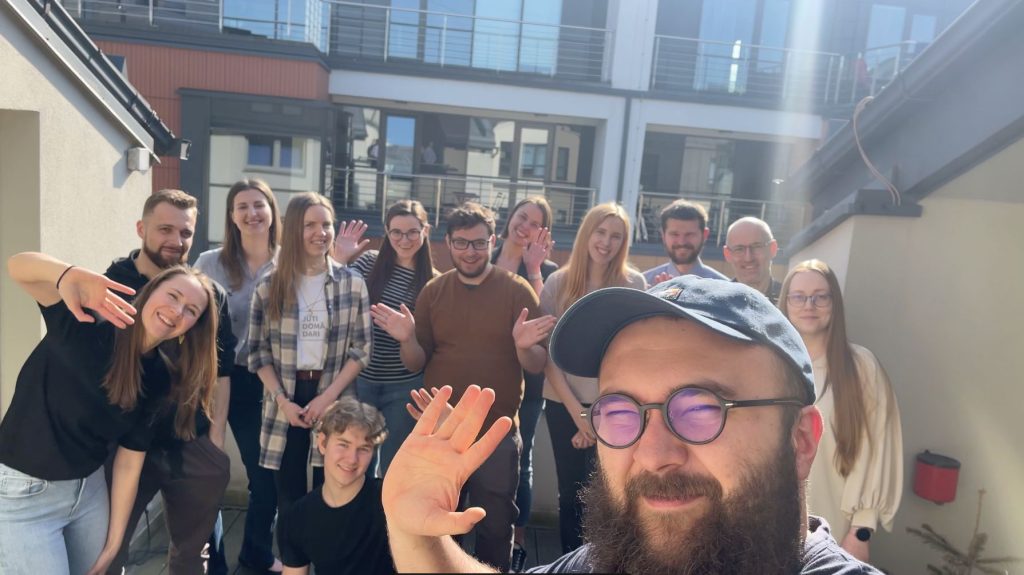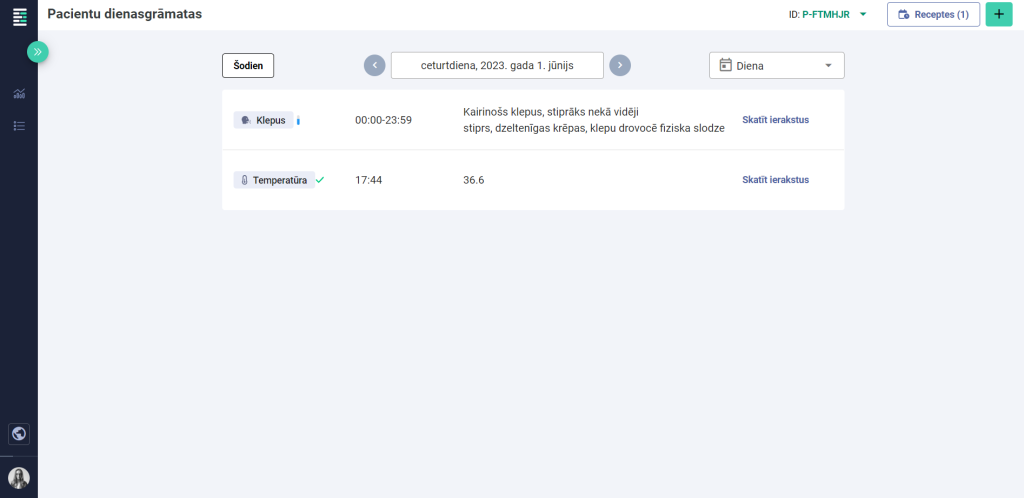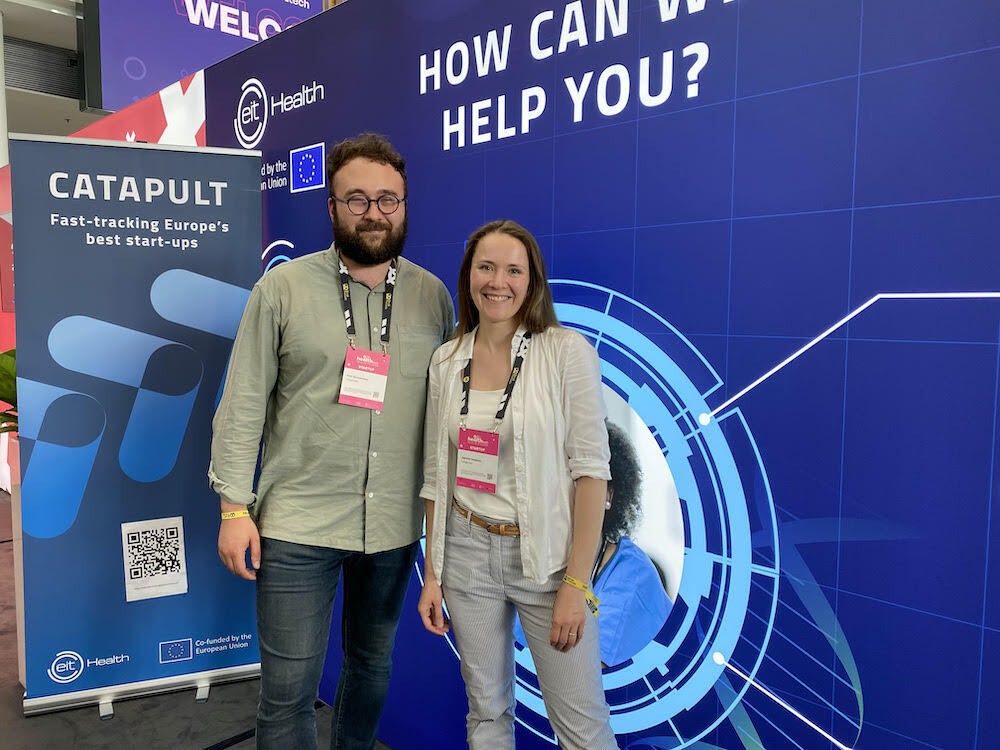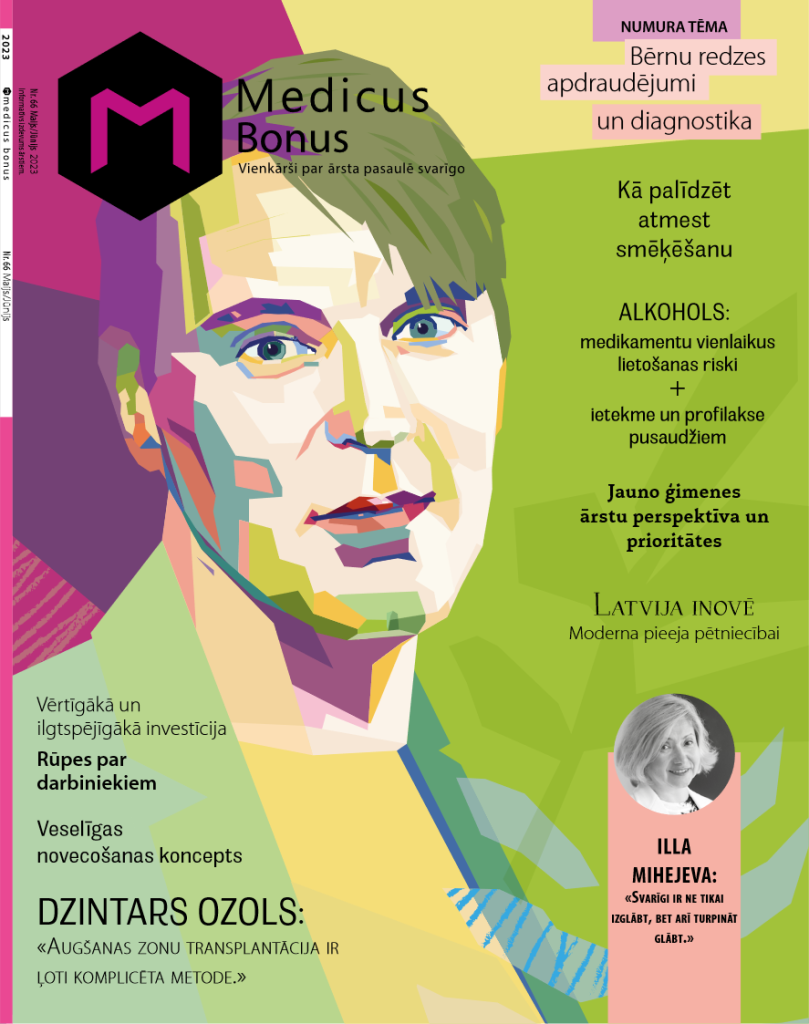
The history of medicine is largely shaped by discoveries that have saved the lives of millions, or even billions, of people. Researchers around the world invest time and effort to create the next significant healthcare knowledge milestones. An epidemiologist and computer scientist from Latvia share their insights on the research environment and its development in Latvia.
Epidemiology and the Nature of Research
Associate Professor Liliāna Civjāne (Lilian Tzivian), who holds a Ph.D. in epidemiology obtained in Israel, and completed three postdoctoral years of study in Germany where she continued to work as a leading researcher, is currently the head of the Master’s program in Epidemiology and Medical Statistics at the University of Latvia. This program allows students with a background in natural sciences or related fields to learn how to conduct research in medical, sociological, psychological, and other fields related to human beings. They learn how to design studies, predict errors, perform statistical analyses, process large datasets, and read and write scientific publications. As the professor explains, this is precisely the work of an epidemiologist: designing studies to ensure reliable results and practical conclusions. For example, breast cancer can affect anyone, both men and women, but it generally would not be correct to include both genders in a single study because women are predominantly affected.
A significant part of epidemiology as a research field involves predicting and preventing research errors while structuring a study. To achieve this, the researcher must be able to evaluate the scientific literature on the relevant topics and work with large amounts of information and data. Prior to the establishment of the aforementioned program in Latvia, it was not possible to study epidemiology as a specialty. Epidemiologists in Latvia have mostly studied public health, which is related to epidemiology but is nonetheless a different field that focuses on communication with society. Professor states that unfortunately, the distinction between these specialties is not always understood in Latvia, but she hopes that it will change over time because everyone in the country would benefit from it – institutions (the Disease Prevention and Control Center, the National Health Service, among others), researchers, and the general public.

Longenesis team, in the front – Emīls Sjundjukovs, co-founder of Longenesis
Connecting people with good ideas
“Each of our company’s employees has worked in the field of biomedicine and has encountered the same problems in almost every project – data scattered across various services, the need to comply with complex privacy and other regulations, and the difficulty of achieving maximum patient engagement. To address these issues, Longenesis was created, our digital product for healthcare institutions such as hospitals, biobanks, laboratories, registries, associations, and life sciences sector companies,” says computer scientist and co-founder of Longenesis, Emīls Sjundjukovs. “While our solutions support general research and the storage of medical data, as a company we focus on specific disease verticals such as women’s oncology, cardiology, and pediatrics. In collaborations (with academic representatives and hospital staff), we concentrate on these areas and hire specialists with relevant medical and research education. This is very important because we are not just an IT company; we cannot do without experts from the medical field. We see even clinicians working in hospitals as our partners.”
Clinical, epidemiological, or public health research always relies on data and patients. To initiate a study, it is necessary to understand how to handle them best. In most cases, hospitals provide the data, which then ends up in foreign registries and databases. To use this data, a researcher needs to apply to these organizations to retrieve it. The goal of the Curator module of Longenesis is to allow hospitals and universities to store their data within internal systems (collected and maintained according to international guidelines), enabling local researchers to easily use them securely and anonymously. And fast too – as there are examples where with the help of Longenesis research studies were initiated within a few days after signing the documents. Integrating Longenesis services with the hospital’s IT network is usually straightforward – a small bit of code is sufficient to integrate the data flow into the patient portal. If the infrastructure is lacking or integration is not possible for some other reason, there is always the option of a cloud service.

Longenesis Engage – patient engagement platform
Difficulties with patient engagement in research
The biggest problem in clinical research often is attracting the necessary number of participants to a study. In the past, it was possible to support research participants financially, but now ethical codes completely prohibit it or at the very least – strongly restrict the amounts. Therefore, people need other motivations. L. Civjāne mentions some examples, such as advertisements on metro walls in England encouraging participation in studies or invitation letters sent by mail in Germany. It is known that the positive response to such engagement methods is less than 40% of what is needed. Most likely, these invitation methods would not be effective in Latvia either. Longenesis offers new methods to attract and motivate people to participate in scientific research. The professor says, “I don’t know how they do it, but the company knows how to appeal to people from all over Latvia, regardless of their economic situation. Even more – many of these people are motivated to actively continue their participation in studies. Cooperation with doctors takes place, resulting in participants receiving recommendations for their health issues or prevention. Their interest in their bodies and health increases, and they better follow instructions on following their therapy.”
Typically, a patient in a healthcare institution fills out a questionnaire that ends up in a folder with a whole bunch of other papers. Their involvement is passive and they don’t receive anything in return – it’s not even about monetary value, but simply about transparency of engagement. “For this reason, Longenesis created the Engage platform, which healthcare institutions can use for research or simply working with patient data. It enables the implementation of various initiatives such as screening visits, interim visit monitoring, increasing patient engagement, monitoring quality of life, and more,” says E. Sjundjukovs. The patient can use a phone or tablet to engage with the process, their data can be collected, and clinical or scientific decisions can be made based on that info (plus – researchers can easily achieve dynamic patient engagement). Transparency and ethical principles underline the entire process – the patient is well-informed about every step, and their active consent is necessary. They have the opportunity to receive added value, such as access to therapies, examinations, or rehabilitation.
Research can go much smoother
Professor Civjāne adds: “The researcher has the opportunity to actively monitor the participant selection and adjust further engagement. For example, if an equal number of men and women are needed for the research, but the registration list only shows men, the researcher can request advertising adjustments – targeting more women. Moreover, in epidemiological studies, the required number of participants is calculated before the study begins. Until now, it was only possible to find out if it was sufficient after the study’s completion when all statistical analyses had been done. Now, with the help of the platform created by Longenesis, we can check in the middle of the study whether the sample needs to be increased or if the existing one is sufficient.”
“When the researcher themselves tries to recruit people for a study, they constantly have to consider how it will be influenced by the fact that, for example, the majority of consenting participants are from their circle of friends,” professor says. “It’s not an impersonal and representative list created from the entire society, and such a biased sample can be erroneous. By the way, family doctors also help in this regard – they usually don’t directly contribute much to research, but we are extremely grateful when they motivate patients to participate. However, people’s involvement in studies is inadequate for all the research that is waiting to get done, or it may happen that one region of a country is overrepresented compared to others. On the other hand, when using Longenesis, for example, in a recent breast cancer study, we found 4000 participants from all over Latvia within the first couple of months, and this sample represented women from various regions, education levels, and ages throughout Latvia.” There are very few companies in the world that address the problems of scientific research. Therefore, when presenting their experience with Longenesis in multiple countries, Professor Civjāne received surprise and interest in return: “We don’t have anything like that, but we should!”

Emīls Sjundjukovs, co-founder of Longenesis; and Agnese Veckalne, COO of Longenesis
Latvia needs to strive for innovation
E. Sjundjukovs emphasizes that in order for Latvia to continue developing the country’s research field, unified rules of the game are needed at the state administration level. Not only for digital solutions, but in general, for example, in terms of the issue where doctors and researchers are working with multiple different IT systems, often at the same time. There is a lack of data standards. The good news is that there is currently both a workgroup and a competence center working on this issue, developing guidelines and regulations. “In foreign conferences, everything is clear about Estonia, but when I try to steer the conversation towards Latvia, it’s hard to give the answer to the question ‘Where can I read about the prerequisites for working in your market?’ Unfortunately, each hospital has its own. In multicenter studies, partners want to see clearly represented regions where clinicians are easily accessible and there is a visible patient base,” says the computer scientist about his experience with international research. “Some extra motivation for speeding up the reforms is that we have had discussions with partners from Finland and Estonia about the potential of combining the health data domains of the three countries.” Finland is one of the world leaders in this field, and such cooperation could help Latvia significantly advance its healthcare system and health data production and use.
“If we hand over our data to others or keep it only to ourselves, the possibility of developing new treatment and therapy methods will be greatly reduced,” concludes and summarizes E. Sjundjukovs. Nowadays, healthcare is developing rapidly, and research is an opportunity for Latvian patients to receive the most advanced therapies right here. Without comprehensive data on patient outcomes, treating them with an individual approach becomes a game of chance rather than a pillar of evidence-based medicine. Even for clinical universities – to strive for excellence they need data that allows them to effectively conduct cutting-edge research. For these reasons, research has tremendous importance in modern healthcare systems and needs to be supported in every possible way.
In the Latvian startup ecosystem, Longenesis is among the most well-known – both due to their unique and pioneering solutions, and because they keep taking home prizes from innovation competitions from all around the world. The most recent one – second place in the digital health category of EIT Health Catapult 2023. Let’s cheer for them to transform the healthcare research landscape of Latvia, the EU, and beyond!
This article was created in partnership with Medicus Bonus – a Latvian magazine for healthcare professionals – in a new series about healthcare innovation happening in Latvia. If you are a doctor, the subscription is free – just write to redakcija@medicusbonus.lv !

